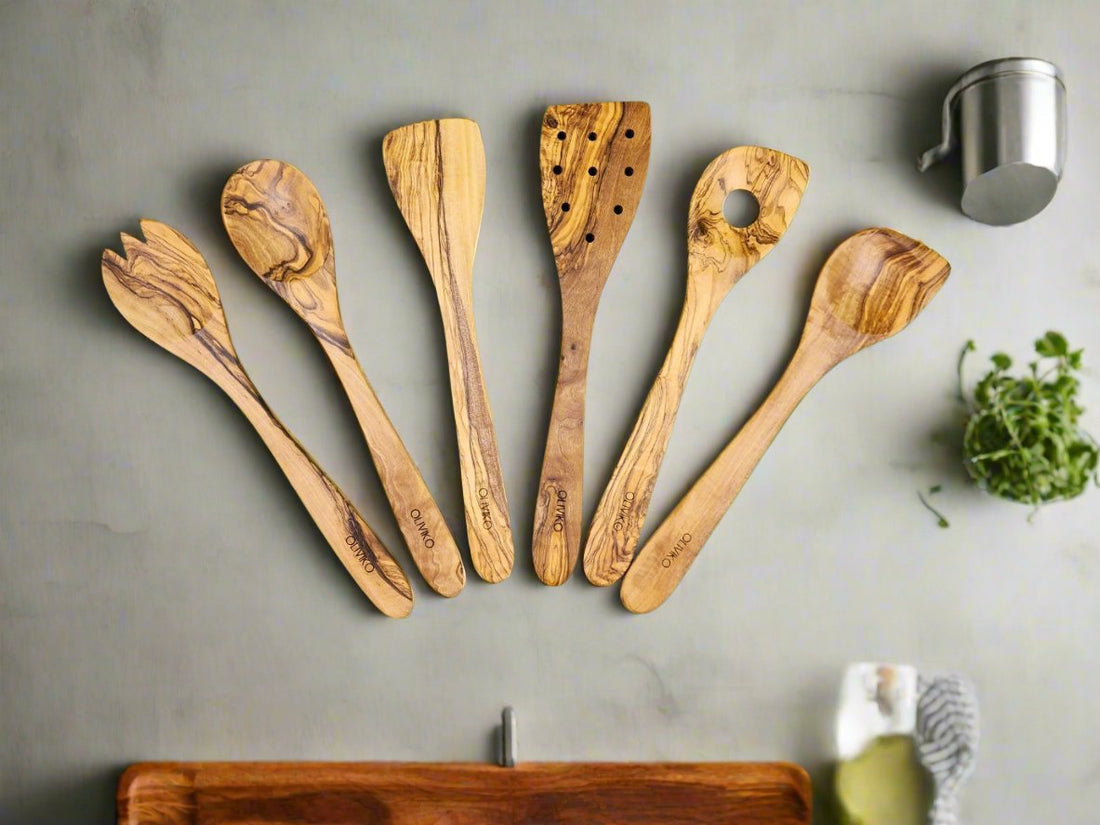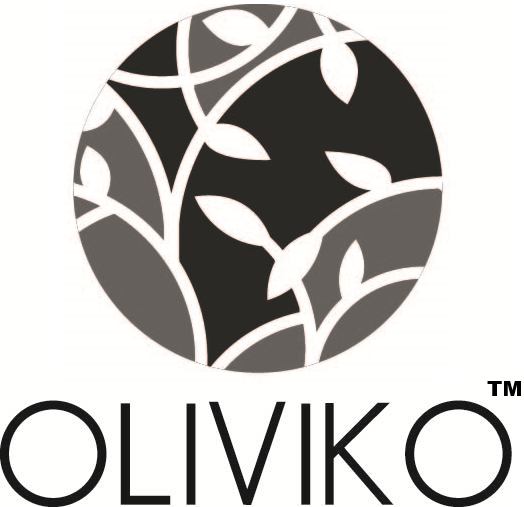
Why Olive Wood Utensils Are a Perfect Choice for Your Kitchen
Partager
Why Olive Wood Utensils Are a Perfect Choice for Your Kitchen
In a world where eco-friendly and sustainable products are becoming essential, olive wood utensils offer a unique blend of beauty, functionality, and environmental consciousness. Handcrafted from the branches of centuries-old Mediterranean olive trees, olive wood utensils bring a warm, rustic charm to the kitchen. But why should you choose olive wood over other materials? Let’s dive into the benefits, uses, and care tips for these timeless kitchen essentials.
The Beauty and Durability of Olive Wood
One of the first things you’ll notice about olive wood utensils is their gorgeous grain patterns. The intricate swirls and golden hues are unique to each piece, making every olive wood spoon, fork, and spatula a one-of-a-kind addition to your kitchen. The wood’s amber tones, streaked with rich browns and creamy yellows, add a natural elegance that complements any kitchen style. Beyond aesthetics, olive wood is dense and incredibly durable. Unlike softer woods, olive wood can withstand daily use without scratching, denting, or splintering. It’s also naturally resistant to stains and odors, which means that your olive wood utensils won’t hold onto smells or discolor over time, even when used with rich sauces, spices, or acidic ingredients.
Eco-Friendly and Sustainable
Olive wood utensils are also a sustainable choice. Olive wood is sourced from pruned branches of olive trees that continue to produce olives for hundreds of years. By using these branches, olive wood production supports tree health without requiring deforestation. This process keeps olive wood utensils 100% natural and eco-friendly. Additionally, olive wood is free from synthetic chemicals, plastics, and coatings that can harm both the environment and your health. When you choose olive wood, you’re not only bringing a beautiful piece into your home but also supporting environmentally friendly practices.
Why Olive Wood Utensils Are Safe for Cooking
Olive wood is non-reactive, meaning it won’t release harmful chemicals or alter the flavor of your food. Unlike metal utensils, which can interact with acidic foods, or plastic, which may contain BPA, olive wood is safe to use with all types of ingredients. This makes it perfect for stirring, mixing, and serving without worrying about contamination or changes in taste. Furthermore, olive wood has natural antibacterial properties. Its dense structure prevents bacteria from seeping in, keeping your kitchen hygienic. As long as it’s properly cleaned and oiled, olive wood remains a safe and healthy choice for your cooking needs.
How to Care for Olive Wood Utensils
To keep olive wood utensils looking their best, a little extra care is needed. Here are some easy tips:
- Handwash Only: Olive wood is not dishwasher safe, as high temperatures and water exposure can cause warping and cracking. Simply rinse with warm water and a gentle soap, then dry immediately.
- Avoid Soaking: Prolonged exposure to water can lead to swelling or splitting. Never leave olive wood utensils soaking in water.
- Regular Conditioning: Olive wood can dry out over time. Apply a thin coat of food-safe mineral oil, beeswax, or coconut oil every few weeks to restore shine and prevent cracking. Let the oil absorb overnight, then wipe away any excess.
- Removing Stains and Odors: For tough stains, lightly sand the area with fine-grit sandpaper and reapply oil. If a utensil develops an odor, try rubbing it with a mixture of baking soda and water or lemon juice, then rinse and dry.
Common Uses for Olive Wood Utensils
Olive wood utensils are as versatile as they are beautiful. Here are some popular ways to use them:
- Cooking and Stirring: Olive wood spoons and spatulas are ideal for stirring sauces, soups, and stews, as they won’t scratch non-stick cookware.
- Serving: Add a rustic touch to your dining table by using olive wood utensils for serving salads, pasta, or side dishes.
- Baking: Wooden rolling pins, pastry brushes, and spatulas made from olive wood offer a natural, sturdy feel for all your baking needs.
- Gift Giving: Olive wood utensils make unique and thoughtful gifts for friends and family, especially those who appreciate eco-friendly and artisanal products.
Choosing High-Quality Olive Wood Utensils
When shopping for olive wood utensils, look for products that are 100% handcrafted and made from a single block of wood. Avoid utensils with synthetic finishes or glued parts, as these may compromise durability and safety. High-quality olive wood utensils should have a smooth finish and no visible cracks or splinters.
Why Olive Wood Utensils Are Worth the Investment
While olive wood utensils may cost more than plastic or metal alternatives, they are a valuable investment in both quality and sustainability. With proper care, olive wood utensils can last for years, providing a beautiful, functional addition to your kitchen while supporting eco-friendly practices. Their natural antibacterial properties, durability, and non-reactive surface make them a safe, practical choice for everyday cooking.
In Summary
Olive wood utensils offer a rare combination of beauty, durability, and sustainability. Whether you’re an eco-conscious cook or simply appreciate high-quality kitchenware, olive wood utensils bring unique charm and utility to your kitchen. With a little bit of care, these beautiful tools will serve you for years to come, proving that style and functionality can go hand in hand. Embrace the art of cooking with olive wood utensils—a choice that celebrates nature, craftsmanship, and timeless elegance.
